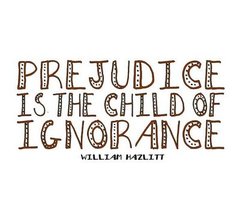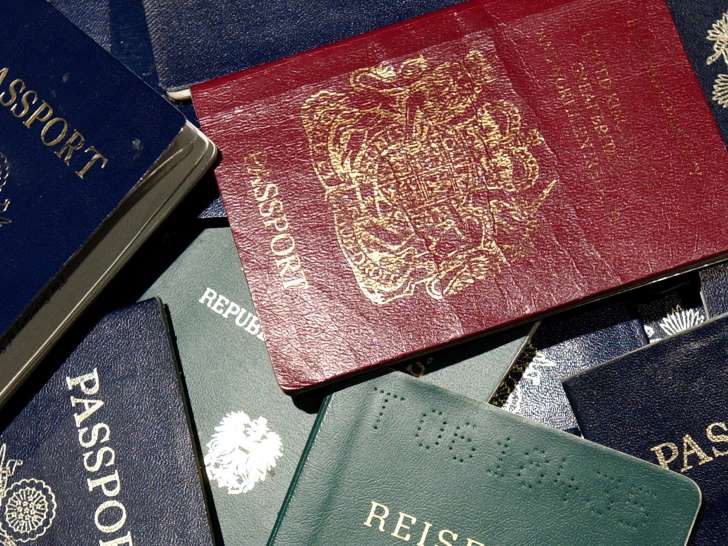
– Dr Satish K. Kapoor
“Which is the worst race in the world?” asked an eminent anthropologist from his students in a western university at the time of Armenian trouble. “The Turks”, roared the class. The professor then questioned: “How many of you have ever known a Turk?” No one had.
So goes a typical story about prejudice which I read some years back.
Prejudice is said to be “the reason of fools.” It is an opinion without judgment that logic cannot tone down and reason cannot alter. As Ambrose Bierce observed in The Devil’s Dictionary : “It is a vagrant opinion without visible means of support”. Even a cursory glance at the life of the modern man reveals that his habits, customs, manners, dress and even culinary tastes bear the print of prejudices whether strong or weak. His religious beliefs are a blind credulity; his social behavior is determined by worn-out customs sustained by age-old prejudices.
Channing Pollock once related how a friend in London confided in him that he had never spent a holiday on continent because “they drive on the wrong side of the street”. Not “on the right side”, while we drive on the left, mind you, but “on the wrong side”. The American Playwright recounted this to illustrate “instinctive intolerance” in men and to show how firmly our habits become fixed.
The modern youth describes the older generation as a spent force and the older generation hypercritically considers the modern youth to be a worthless lot. Capitalists say, the classless society which Marx prognosticated “shimmers dejectedly on far away horizons”. And communists retort: “Capitalists are cobweb-spinning flea-crackers” and must be tamed in the interest of humanity. Leftists claim their methods are right; Rightists believe they alone are prudent.
Man for long was prejudiced against “Eve” and dubbed her as “the temptress of the forbidden tree”, the first deserter of the divine law” and “God’s second mistake”. Even to-day when she has freed herself from her old servitude, an occasional echo is heard: “Man for the field and woman for the home.
Those who are prejudiced against drinking remark in a lampooning way: “If you want to keep a dead man put him in whisky, if you want to kill a man put whisky in him”. If they shed prejudice they would realize that it has its brighter side too if taken in moderation. Besides, half the literature of the world is born of liquor and about one fourth has emanated from opium and other intoxicants. Who would know Ghalib if he was not a drunkard? And who would read Coleridge if there were no opium? Too much of drink may drink up one’s health. But excess is bad in every case. Is man immoderate or liquor?
Prejudice reigns supreme in the domain of religion. The Buddhist monks eschew discussion on the existence of God because the Buddha was silent in this respect. The Jainas refuse to take flesh because it was prohibited to them centuries ago. The catholic priests do not marry because Christ lived the life of a celebate. Polygamy and even concubinage is permitted in Islam because it is said to be authorized. “It is not a sin to marry four wives but it is wicked and immoral to marry five”. Atheists hold that chance alone created the world when “it cannot build a house”.
Beware of the man of one book”, warned ST. Thomas Aquinas. Prejudice has stagnated the mind of religious protagonists. No fifth Veda has been produced by Hindus: nothing has been added to the “Four Truths” and the “Eight Fold Path” by Buddhists. Zoroastrians have not improved upon their eschatological beliefs. Swami Vivekananda took a dig at these “Infallibalists” when he said that they drink brackish water from a well that others have dug. The persecution of Elijah by Zezebel, of Anglicans by Cromwell, of Quakers by Calvinists, of Puritans by Protestants and of Jews by Hitler, besides many more, are eloquent examples to prove that Prejudice foments intolerance in man, which in Lord Macaulay’s words is simply this: “I am in the right and you are in the wrong. When you are the stronger, you ought to tolerate me, for it is your duty to tolerate truth. But when I am the stronger, I shall persecute you for it is my duty to persecute a error”.
National and racial prejudices have made beasts of men and drenched the earth with human blood. Cecil Rhodes argued that the British race was the finest which history had produced, and Victor Hugo contended the France was necessary for the human race. Hitler thought differently. “Out of all races, the Aryan race is the superior; out of Aryan race, Germans are the superior. Out of the Germans, the members of the Nazi Party are the superior. Out of them the ‘Elite’ are superior and out of the elite the Fueherer is the superior most; and therefore, they should rule”.
Racialism has given birth to social inequality, aggressive wars and mass annihilation. The Bantus, the Boers, the Hottentots, the Red Indians and other tribes have been victims of prejudice at one time or the other. Colour prejudice remains deeply entrenched in the mind of the “whites”. A black man is considered primitive, ill-mannered, irresponsible, mammon-worshipper, deceitful, narrow minded, unscrupulous, uncouth, lazy and a sex-maniac. He is ridiculed as a “nigger”, “a raccoon”, a “coolie” and is discriminated against in matters of accommodation, employment and credit facilities.
An unknown orator whom I heard sometime in 1975 at the Hyde Park, London, wondered, how could a white man having brown hair, blue eyes, red cheeks, and ginger beard call a black man ‘coloured’. Should a man be judged by his skin or by his actions? Edgar A. Guest’s words echo in my mind:
My son, despise not race or clan;
Pass judgment only on the man.
Make friends or enemies by deeds;
Never by boundries or creeds.”
Prejudice is said to act in relation to truth, as alkali does in relation to acids. In the words of Macduff, “it is the conjurer of imaginary wrongs, strangling truth, over-powering reason, making strong men weak and weak men weaker”. Prejudice crucified Jesus Christ, poisoned Socrates, exiled Protagoras, pole-axed Madam Rolland, assasinated Martin Luther, and harmed many others. It kept the women under subjection for a long period, made slaves of men, blinded societies with superstitions and axed the moral values. It has encouraged sophistry in argument and credulity in action.
Prejudice has given birth to regionalism, parochialism, communalism, sectionalism, chauvinism, and many other evils. It has distorted history to the maximum. The histories of Italy written by Magyars, of France by Teutons; of Poland by Russians and of India by Englishmen are, in most cases, distortions of facts.
Can prejudice be weeded out of man’s mind? Some say it cannot be __ it was not reasoned into him and cannot be reasoned out. It is argued that everyone is a prisoner of his own experiences. “Hence no one can eliminate prejudices just recognize them”. To use Locke’s words: The only cure is that every man should let alone other’s prejudices and recognize his own. The American historian Bancroft rightly held that the prejudices of ignorance are more easily removed than the prejudices of interest, the first are all blindly adopted, the second willfully preferred”.
______________________________________________
Dr Satish K Kapoor is a noted educationist, historian, spiritualist and meditation-teacher. His latest book , Hinduism – The Faith Eternal, has been published by Advaita A


 South Asian News E-Paper
South Asian News E-Paper Punjabi News E-Paper
Punjabi News E-Paper

















